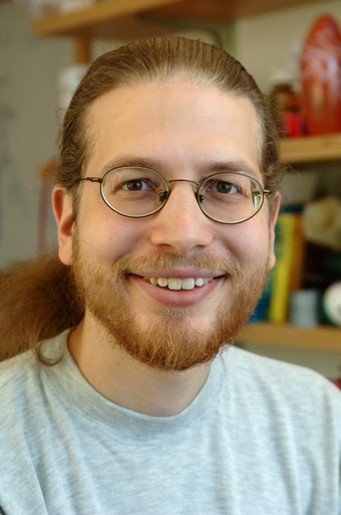EECS Professor Erik Demaine named 2019 MacVicar Fellow

Professor Erik Demaine
Alison Trachy, Registrar’s Office | EECS Staff
EECS Professor Erik Demaine has been selected as a 2019 Margaret MacVicar Faculty Fellow. He is among four MIT faculty members to receive the award for outstanding contributions to undergraduate teaching, the Office of the Vice Chancellor and the Registrar’s Office announced this week.
In 2001, at the age of 20, Demaine became the youngest faculty member ever hired by MIT. He has been at the Institute ever since, pursuing wide-ranging interests that have led to a MacArthur “genius” grant and art displays at the Museum of Modern Art in New York and the Smithsonian Institution. In 2017, he helped construct a universal algorithm for folding origami shapes, a project which he had initially begun almost two decades prior.
“I chose to join MIT’s faculty because of their care for undergraduate education and the constant quest for improvement,” Demaine says. “It’s awesome to share this honor with the many great educators here.”
Nominators and colleagues praised Demaine’s work in algorithms and data structures as well as his passionate, collaborative teaching style.
Charles Leiserson, Edwin Sibley Professor in EECS, described what it was like to co-teach with Demaine during his first term at MIT: “In my 37 years at MIT, this teaching experience was surely among my most pleasurable. Erik … [was] well-prepared, articulate, inspiring, empathetic, imaginative, engaging, and fun. He taught with a passion. I have never seen a brand-new faculty member with such a complete ‘package’ of teaching skills.”
Many nominators spoke of how his meticulous lecture notes have become the gold standard for teaching in the field. Demaine’s notes “convey the magic of algorithms in a clean, crisp, and inviting, yet still complete way,” says Konstantinos Daskalakis, professor of computer science and electrical engineering.
“Erik has a deep conceptual view of how to organize and explain the interplay between the ideas in algorithm design,” adds Ronitt Rubinfeld, another EECS professor. “His notes especially shine in the difficult topics, such as how to teach dynamic programming. His deep and thoughtful classification of the different ideas that go into explaining why dynamic programming algorithms work is well beyond any explanation that I have heard in the past 30 years.”
“Erik has a joyful, energetic style of teaching that everyone loves,” says Srini Devadas, also a Webster Professor in EECS.
This energy is evident in Demaine’s classes, which are centered around collective problem-solving. To harness this spirit of cooperation, he developed a tool called Coauthor. As one student explained, “Coauthor allowed people to collaborate even beyond class hours … as people suggested different directions, and made incremental progress over several days.”
“The combination of both the drive and ability to impact student learning for the better is what makes Erik such an effective teacher, both inside and outside the classroom,” said another student.
Demaine has also received a Guggenheim Fellowship, a Sloan Research Fellowship, an NSF CAREER Award, and the Presburger Award for Young Scientists from the European Association of Theoretical Computer Science. Other MIT awards include the Harold E. Edgerton Faculty Achievement Award, the Burgess and Elizabeth Jamieson Award for Excellence in Teaching, the Ruth and Joel Spira Award for Excellence in Teaching, and a Steven and Renee Finn Innovation Fellowship. He is a fellow of the Association for Computing Machinery.
Erik and three other MacVicar fellows — economics Professor Joshua Angrist, anthropology Associate Professor Graham Jones, and comparative media studies Professor T. L. Taylor — will be honored on March 8 during the MacVicar Day festivities.
The MacVicar Faculty Fellows Program honors the life and contributions of the late Margaret MacVicar, professor of physical science and MIT’s first dean for undergraduate education. It recognizes extraordinary undergraduate teaching by appointing fellows to 10-year terms, during which they receive $10,000 annually in discretionary funds.
For more on the 2019 MacVicar Fellows, visit the MIT News website. For more on the Margaret MacVicar Faculty Fellowship Program, visit the program website.
Media Inquiries
Journalists seeking information about EECS, or interviews with EECS faculty members, should email eecs-communications@mit.edu.
Please note: The EECS Communications Office only handles media inquiries related to MIT’s Department of Electrical Engineering & Computer Science. Please visit other school, department, laboratory, or center websites to locate their dedicated media-relations teams.